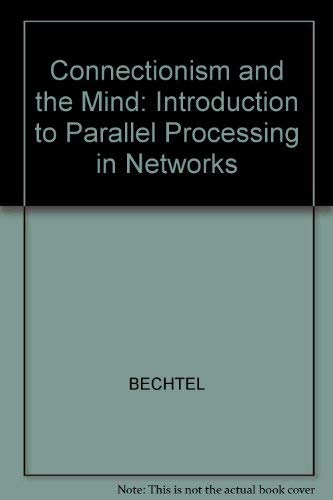
Synopsis
The newest cognitive models are inspired by the properties of the brain itself. Variously referred to as "connectionist", "parallel distributed processing" or "neutral-network" models, they explore the idea that complex intellectual operations can be carried out by large networks of simple, neuron-like units. The units themselves are identical, very low-level, and "stupid" - intelligent performance is derived from the pattern of connection strengths between units, and the fundamental cognitive activity is pattern recognition and completion. In contrast, in traditional models knowledge is represented symbolically, and the basic cognitive activity is the manipulation of symbols in accord with rules. "Connectionism and the Mind" provides an introduction to this newly emerging approach to understanding the mind, and includes exposition of several of the actual simulations that connectionists have developed. In addition, this book addresses the implications of connectionism for theories of the mind, both philosophical and psychological. Finally, "Connectionism and the Mind" examines the relation of connectionist models to philosophical accounts of propositional attitudes, and to a variety of other inquiries in cognitive psychology, linguistics, developmental psychology, artificial intelligence and neuroscience.
"synopsis" may belong to another edition of this title.
Review
"Much more than just an update, this is a thorough and exciting re–build of the classic text. Excellent new treatments of modularity, dynamics, artificial life, and cognitive neuroscience locate connectionism at the very heart of contemporary debates. A superb combination of detail, clarity, scope, and enthusiasm." Andy Clark , University of Sussex " Connectionism and the Mind is an extraordinarily comprehensive and thoughtful review of connectionism, with particular emphasis on recent developments. This new edition will be a valuable primer to those new to the field. But there is more: Bechtel and Abrahamsen′s trenchant and even–handed analysis of the conceptual issues that are addressed by connectionist models constitute an important original theoretical contribution to cognitive science." Jeff Elman , University of California at San Diego
From the Back Cover
Connectionism and the Mind provides a clear and balanced introduction to connectionist networks and explores their theoretical and philosophical implications. As in the first edition, the first few chapters focus on network architecture and offer an accessible treatment of the equations that govern learning and the propagation of activation, including a glossary for reference. The reader is walked step–by–step through such tasks as memory retrieval and prototype formation. The middle chapters pursue the implications of connectionism′s focus on pattern recognition and completion as fundamental to cognition. Some proponents of connectionism have emphasized these functions to the point of rejecting any role for linguistically structured representations and rules, resulting in heated debates with advocates of symbol processing accounts of cognition. The coverage of this controversy has been updated and augmented by a new chapter on modular networks. Finally, three new chapters discuss the relation of connectionism to three emerging research programs: dynamical systems theory, artificial life, and cognitive neuroscience.
"About this title" may belong to another edition of this title.
Other Popular Editions of the Same Title
Search results for Connectionism And The Mind: Introduction to Parallel...
Connectionism and the Mind : An Introduction to Parallel Processing in Network
Seller: Better World Books, Mishawaka, IN, U.S.A.
Condition: Good. Former library book; may include library markings. Used book that is in clean, average condition without any missing pages. Seller Inventory # 2399435-20

